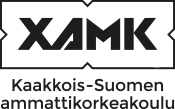Environmental and health risk assessment and management (5 cr)
Code: YT00CV29-3003
General information
Enrollment
08.11.2021 - 21.11.2021
Timing
01.01.2022 - 30.04.2022
Number of ECTS credits allocated
5 op
Mode of delivery
Contact teaching
Campus
Mikkeli Campus
Teaching languages
- Finnish
Seats
20 - 40
Degree programmes
- Master's Degree Programme in Environmental Technology
Teachers
- Arto Sormunen
Teacher in charge
Arto Sormunen
Groups
-
YTMI21SYEnvironmental Technology, master studies
Objective
During the course you deepen your skills in the identification, analysis and prevention of health and environmental risks and you are able to apply information in your own business environment. Specific expertise, abnormal and emergency situations preparedness will increase as well. You can identify the uncertainties of risk assessment and challenges of evaluation (of existing knowledge management, multi-disciplinary expert cooperation, exploitation of the results in decision making organizations and companies). You will be able to produce and apply information for decision-making. The course is in close contact with the administration and legislation –course.
Weekday-based study path
You take part in the weekday-based teaching and tutoring. You study according to the group timetable and do the given homework independently.
Time-saving path
You study independently the material of the course and do the required learning tasks and/or take the exam. If you have earlier knowledge about the subject you can show your knowledge as agreed with your teacher.
Work-integrated path
If you are working during your studies you may be able to do some of your studies integrated with your job. You must talk with your teacher about this and find a suitable developing project at your work place. You have to include theoretical knowledge in your studies. You show your knowledge so that the aims of the course will be fulfilled.
Content
What are the environmental and health risks and how they are managed?
How to prepare for specific situations?
What are the responsibilities of the different partners in the risk situation?
What is an ecological risk assessment?
How research results are used in the risk assessment?
Location and time
You study independently the material of the course and do the required learning tasks and/or take the exam. If you have earlier knowledge about the subject you can show your knowledge as agreed with your teacher.
Materials
Material in Learn
Teaching methods
Scheduled track:
You take part in the weekday-based teaching and tutoring. You study according to the group timetable and do the given homework independently.
Independent track:
If you are working during your studies you may be able to do some of your studies integrated with your job. You must talk with your teacher about this and find a suitable developing project at your work place. You have to include theoretical knowledge in your studies. You show your knowledge so that the aims of the course will be fulfilled.
Blended track:
You study independently the material of the course and do the required learning tasks and/or take the exam. If you have earlier knowledge about the subject you can show your knowledge as agreed with your teacher.
Completion alternatives
If you are working during your studies you may be able to do some of your studies integrated with your job. You must talk with your teacher about this and find a suitable developing project at your work place. You have to include theoretical knowledge in your studies. You show your knowledge so that the aims of the course will be fulfilled.
Student workload
Lectures 24 h, independent work 110h = totally 135 h
Assessment criteria, approved/failed
a) find, study, produce and evaluate critically multidisciplinary data in their field of expertise.
b) solve demanding problems in research, development and innovation
f) work independently in the expert duties of their professional field or as entrepreneurs.
g) communicate proficiently and systematically in their spoken and written native language and in one foreign language
Evaluation scale
1-5
Assessment criteria, good (3)
a) find, study, produce and evaluate critically multidisciplinary data in their field of expertise.
b) solve demanding problems in research, development and innovation
f) work independently in the expert duties of their professional field or as entrepreneurs.
g) communicate proficiently and systematically in their spoken and written native language and in one foreign language
Assessment methods and criteria
Learning tasks accepted and exam
Qualifications
Bachelor’s thesis in a suitable field.
